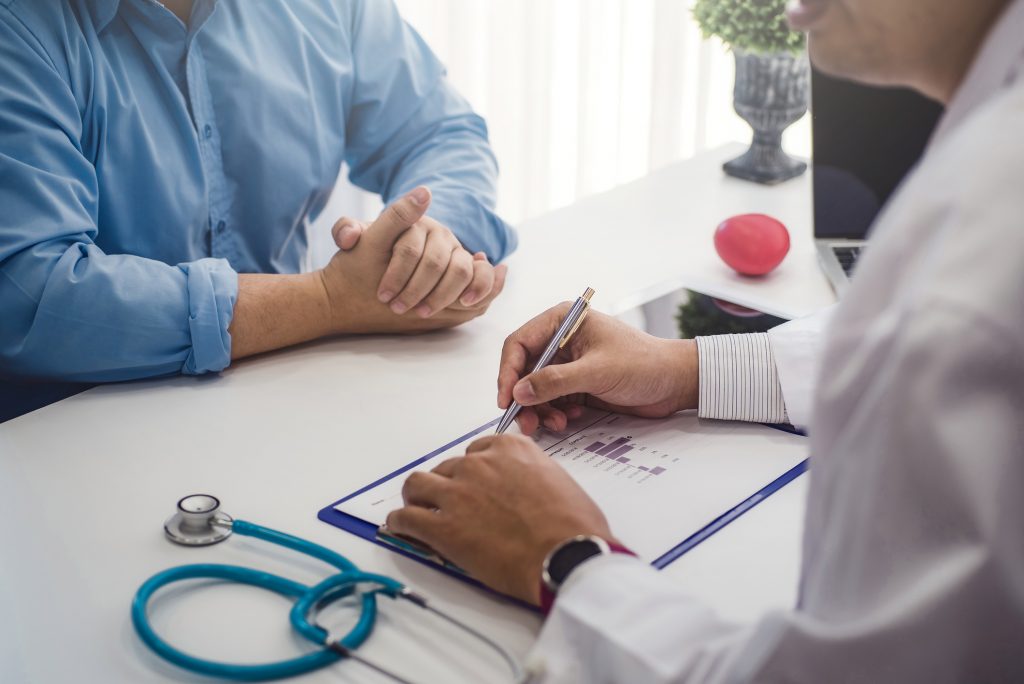Outpatient care — your first visit
Newborns with severe liver problems are often treated in a hospital setting. But, many children and adults with milder liver disease receive outpatient care after their initial diagnosis.
Download Outpatient Care for Alpha-1 Liver Disease as a PDF.
Your initial outpatient visit after a diagnosis of Alpha-1-related liver disease should focus on evaluating and treating existing problems and preventing new complications. Your doctor will do a thorough medical history and a physical exam, and order some tests.
If your physical exam reveals issues like low weight, poor childhood growth, or signs of abnormal blood flow (portal hypertension), they may order other tests. They’ll also prescribe vitamins or other strategies to help you get the calories and nutrients you need.
If you haven’t gotten hepatitis A and B vaccines, you’ll start getting these shots at this visit. Your doctor will check for signs of lung disease since Alpha-1 increases your risk for it.
Outpatient care — follow-up visits
Once your doctor has a clear picture of your liver health, they’ll make a plan for regular monitoring. If they find problems, they can refer you to a specialist.
Your doctor will do basic liver blood tests once a year, for
- AST/ALT
- Bilirubin
- Alkaline phosphatase (Alk phos)
- GGT
- LDH
- PT/PTT
- Albumin
Every few years, you’ll need specialized tests for liver cancer. Your risk is small, but regular testing may protect you in the long run.
What if you have more severe liver disease?
If you show signs of more severe liver disease, you should see a liver specialist with specific knowledge of Alpha-1. They’ll monitor you closely for signs of liver disease.
For more in-depth information on this topic, please visit the Big Fat Reference Guide (BFRG). If you are enrolled in AlphaNet’s Subscriber Portal, you can access the BFRG here.
Download Outpatient Care for Alpha-1 Liver Disease as a PDF.

